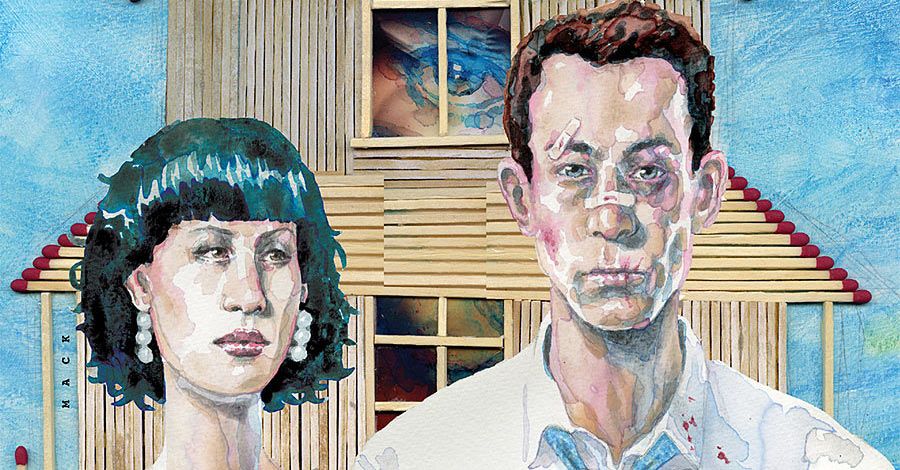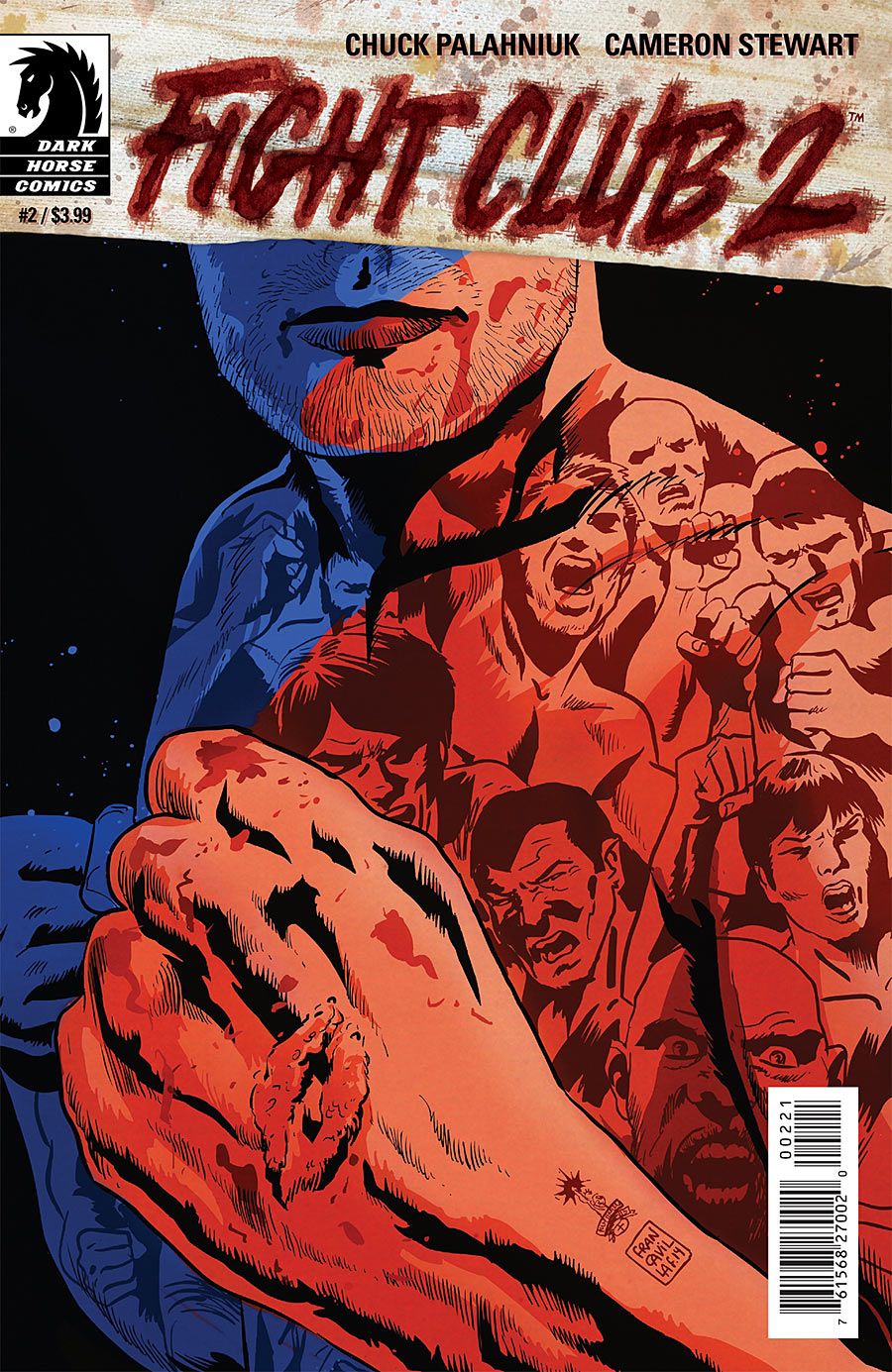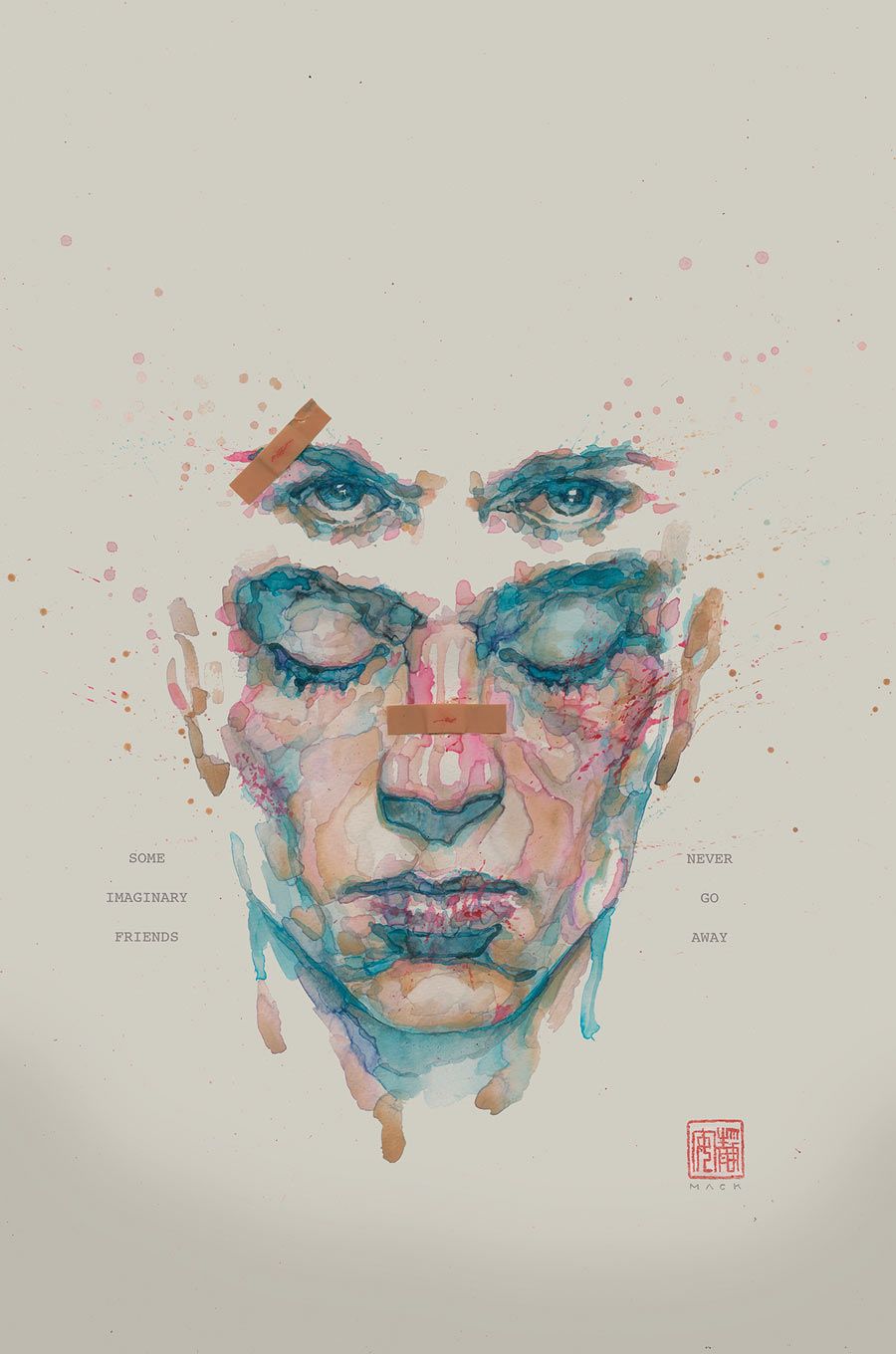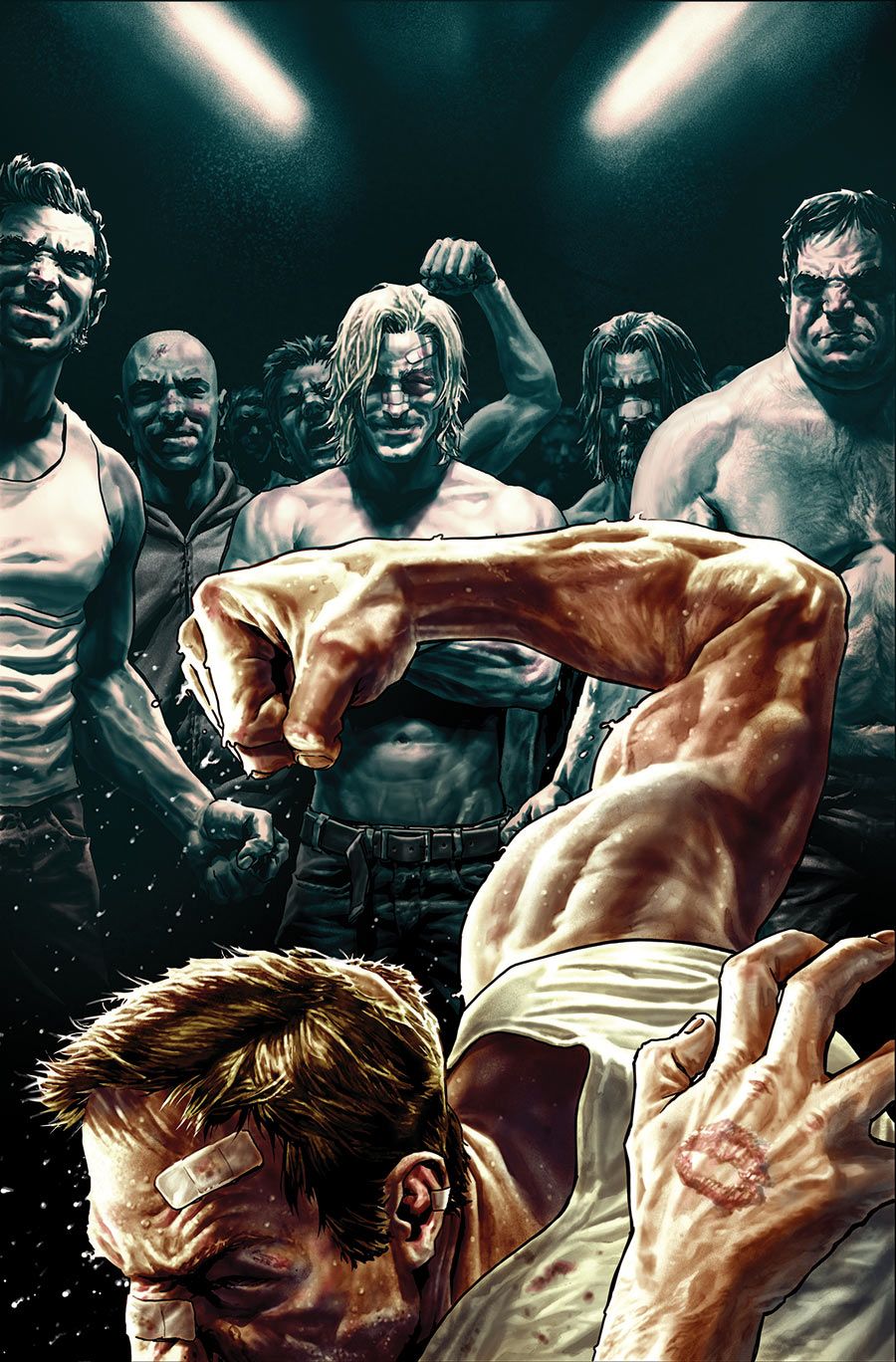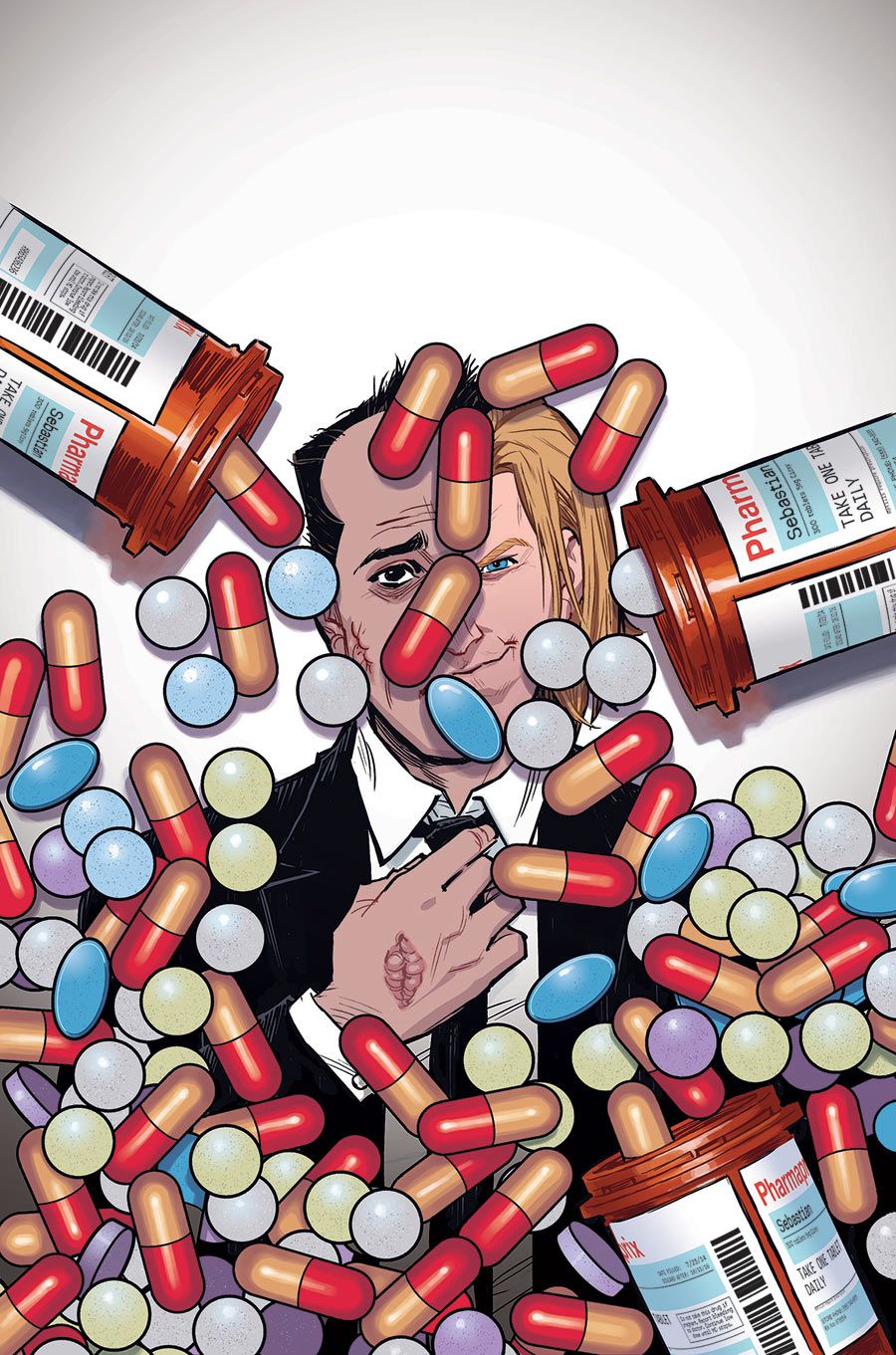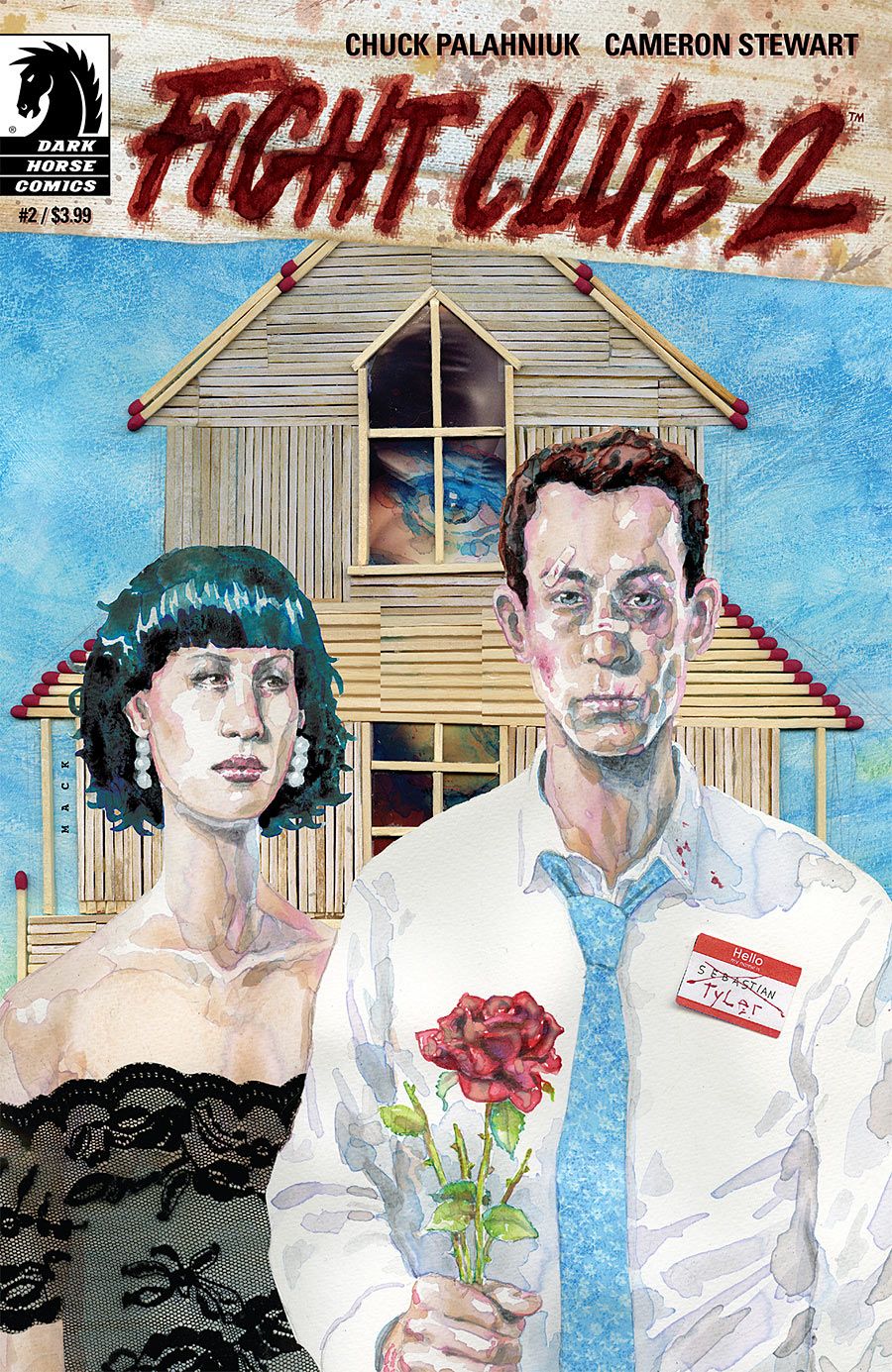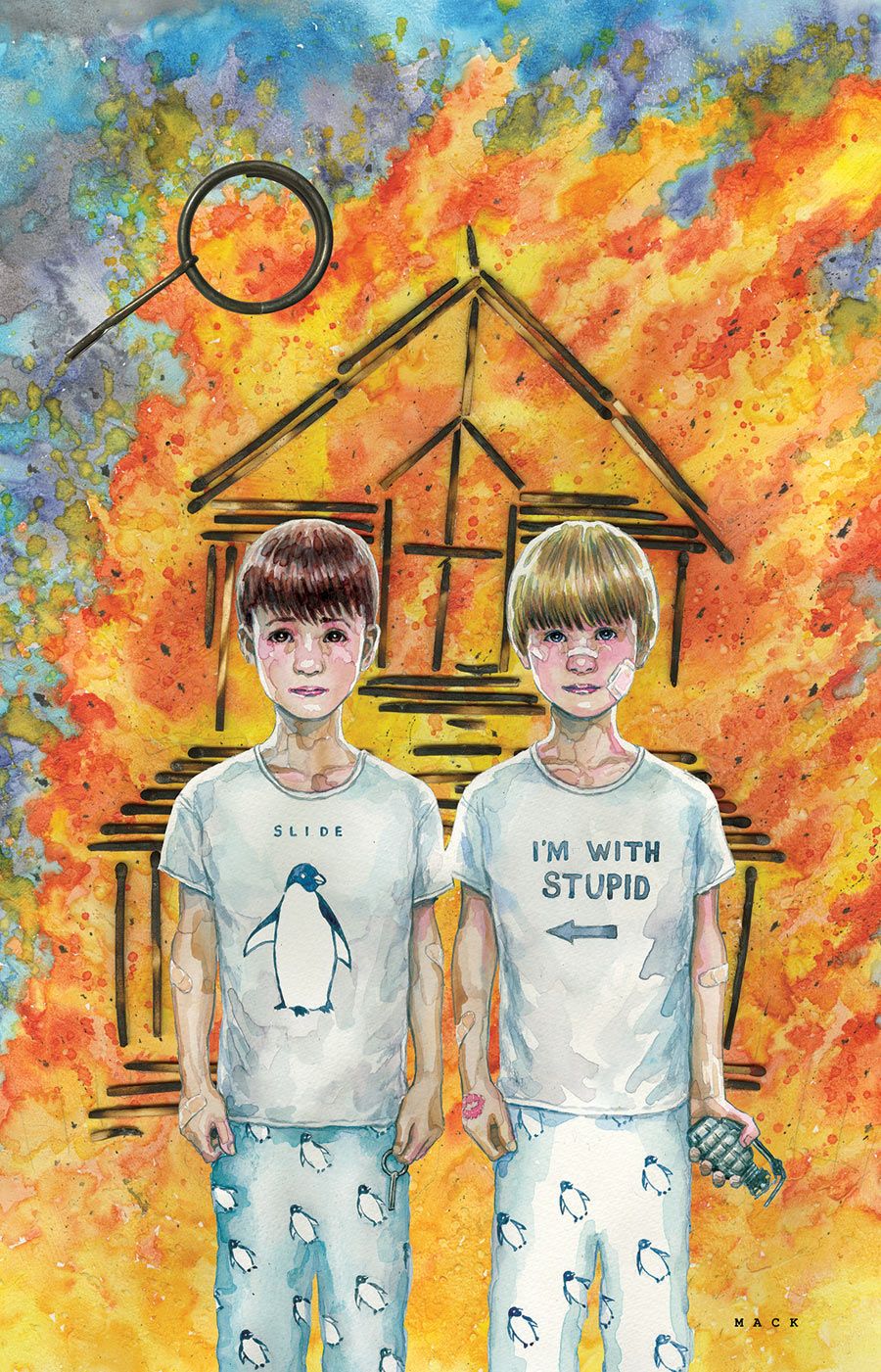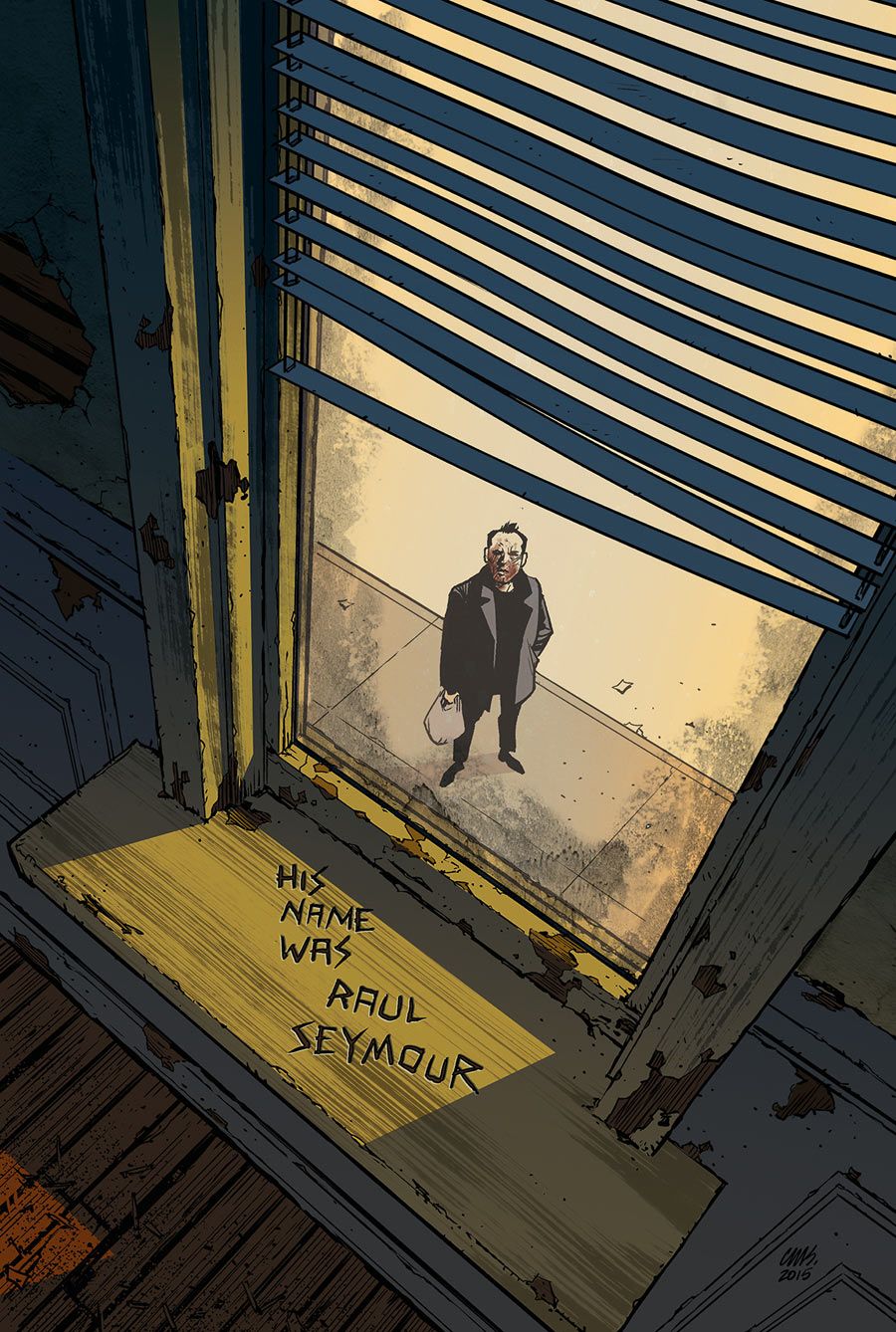EDITORS NOTE: An earlier version of this report stated that Palahniuk plans to do a signing at Chicago Comics. In fact, the stop in Chicago is actually through Anderson's Bookshop and is co-sponsored by Chicago Comics. The event itself will take place at the Chicago Naperville Marriott on Saturday, May 30 at 7:00 PM.
Nearly twenty years after the novel's publication, Chuck Palahniuk's "Fight Club" is ready for a sequel. "Fight Club 2," written by Palahniuk with art by Cameron Stewart and colorist Dave Stewart with covers by David Mack, debuts with May 2 with a Free Comic Book Day issue, with #1 hitting May 27. Mack and Dark Horse editor Scott Allie spoke before a crowd of fans at C2E2, recounting the novel's and film's famous history and teasing what may be next for the Narrator and the man known as Tyler Durden. CBR is reporting live throughout the hour, so refresh your browser for the latest updates.
Allie and Mack began by speaking about other projects, including a deluxe collection of Mack's "Dream Logic," which is available now. Cameron Stewart's "Sin Titulo" got him the job, "and was the only artist I was seriously considering," he said, adding that he fit the semi-cartoony style Palahniuk was searching for.
"If you're fans of the novel, you know that the end of the novel is different from the end of the film," Allie noted, and said the FCBD issue would "remind" readers of the end of the book. "But Chuck wanted to rewrite it, and he turned it on its ear," Allie said.
"'Fight Club 2' is more surreal than the original novel, and the Free Comic Book Day issue sets the tone," Allie said. The intro short is 14 pages, with the rest comprising a "Goon" story by Eric Powell.
To promote the book, Palahniuk created a "Fight Club" board game on a "scroll that was 14-feet long." A copy is bound into the issue of the Previews catalog that solicited "Fight Club 2."
An uncensored version of the "In Preparation for an Emergency Landing" image was shown on screen, followed by Mack's first, mysterious "Fight Club" image. Mack said he wanted that initial promo image to evoke the kind of feeling as "those words," meaning the rules of Fight Club, that people will just fill in.
Stewart's first image, by contrast, was a funnier image, noting that director David Fincher had described the movie to NPR's Terry Gross as "a comedy."
The cover to #1 was originally intended for Free Comic Book Day but, Allie said, "We can't use it for Free Comic Book Day -- it's too good!" "So I had to tell David, the good news is, everyone loves it, but now we have to have you bust out another one." But, Allie said, "Now we know what the book is."
Allie praised Mack's ability to blend image and text, as he did with "Kabuki."
The editor credited Matt Fraction for getting the project together, as the idea to do the sequel as a comic came from a dinner with Bendis, Fraction, Kelly Sue DeConnick, and Chuck Palahniuk. Palahniuk took two of Fraction's books, "Hawkeye" and "Sex Criminals," to figure out how comics worked, in terms of panels, pacing and soforth.
"The first issue of 'Fight Club' is so dense and it's so rich, including the jokes on the inside front cover," Allie said.
Palahniuk said the Narrator is now called Sebastian, according to Allie -- but he won't say whether "that's always been his name." "He's keeping his act together by taking all these drugs to keep down Tyler, and obviously it doesn't work because we have a comic."
Mack said that Marla "kind of misses the crazy guy, especially in bed." "She starts to fuck with his medication, and that has ripple effects."
Mack also talked about Marla and Sebastian's nine-year-old son, who seems to exhibit some of his father's tendencies. "There's so many twists and turns, that you'd never expect that it all makes sense."
Allie said that the whole creative team, including letterer Nate Piekos, got together at colorist Dave Stewart's house, and their retreat allowed Palahniuk to generate even more ideas.
Palahniuk "is doing a very small book tour," Allie said, which will feature a stop at Anderson's Bookshop, co-sponsored by Chicago Comics and featuring an exclusive cover by local artist and "Revival" creator Tim Seeley. The cover is based on "a sort of prequel to 'Fight Club'' that appears in Palahniuk's forthcoming prose collection.
Preview pages shown on screen reveal that "the narrator, this time around, is Tyler," Allie said.
Marla is still touring support groups, "but in this case everyone sees through her because she's being especially horrible, and she goes to a progeria support group and tells them she only has a very mild case of it." Allie said that Cameron Stewart called him after researching with Google Images and said "I think I'm going to hell just for getting the reference."
Allie noted that, because of licensing, the characters don't look like they did in the film but are instead based on Palahniuk's novel.
Mack said that, for the FCBD cover, "initially I wasn't going to use Running Wolf," referring to the nametags pasted all over, all coming from the story within. "But Chuck insisted." He added that the names Sebastian uses "are increasingly unlikely."
Sebastian's tie in the "American Gothic"-styled cover is cornpowder blue, a color Palahniuk works into all of his stories, Mack said.
Talking about the "matchstick house" cover, Mack said, "we get to see the Narrator meeting Tyler as a childhood, as well." Also, in the original, the Tyler child did not have a hand grenade. Mack thought the two children were creepy enough, but he got a note from Palahniuk that said, "can you have the blonde kid pointing a gun at the other kid's head?" Mack said he felt having one threaten the other, diminished the effect. "Well, what if I just give him a hand grenade."
"Then I had to buy a grenade, and get an actual pin," Mack said, to create the cover.
The cover with Sebastian standing outside a window did not originally have "His name was Raul Seymour" inscribed inside the apartment, but after seeing the original they felt it "needed something else going on inside to balance Sebastian standing outside."
Allie said he and Palahniuk have been talking about "doing something wholly original for comics," but "there's nothing on the table" at present. Palahniuk also said on another panel that he'd love to see Mack draw his "Invisible Monsters."
The project ultimately came to Dark Horse because Allie read online that Palahniuk was talking to Marvel, Image, and Dark Horse -- meaning, Allie sussed out, the freelancers he'd spoken with at the dinner party. Allie enlisted Mack's help to bring Palahniuk over to Dark Horse. "And the first time I met him, he had the script for the whole thing."
"I think what got us the book was that my first artist suggestion was Cameron," Allie said, adding that the fact they live down the street from each other gave Palahniuk an accessibility he hadn't known with his New York publishers.
"It was an incredible feeling carrying that script around, 'Fight Club' had meant so much to me," Allie said. "Carrying that script around was like carrying dynamite, which was a good feeling."
Allie joked that "I wish I had 300 of the airplane image that I could give them to you, and tell you to stuff them in the seatback pockets on the way home. I bet there would be consequences."
On the subject of promotional items, Allie said there will be vinyl recording of Palahniuk reading the prequel story. Also, at ComicsPro, he gave retailers "elaborately signed severed arms" and has been mailing severed arms to retailers ever since. Dark Horse's other giveaway was Hellboy beer, giving retailers an interesting assortment to pack in their suitcase.
"I think the thing he loves about comics is he can come up with these funny ideas, and a couple days later it exists," Allie said.
Asked about another sequel, Allie said, "Chuck has said he does have ideas for 3, but right now we've got ten issues."
As to whether there was anything they couldn't do, Allie said the decision about the guns on the cover was more a matter of "Chuck finds guns boring, as do I, and if there was a more creative idea we would run with it." He also said that "a test" for Dark Horse was whether "we'd let Chuck have Marla meet with the progeria kids."
"One little thing that we thought about stepping away from, is there's a house in the story that is an actual house," Allie said, because "a bunch of weird people would come and visit it." But they spoke with the homeowner and ended up proceeding as planned.
Allie said one of the most disturbing scenes was inspired by a conversation he and Palahniuk had over lunch. "Chuck said, oh my god, do I have time to re-write issue [3]?" Allie said that it something that could be imitated in real life, "and we would lose a lot of sleep over that."
"The thing with Project Mayhem is, you're exploring ideas that any rational person would leave alone. But we don't live in a rational world," Allie said.
The cover with the kids, Mack said, could be interpreted as featuring Sebastian's son.
Allie said "there was a learning curve" for Palahniuk "in a very particular way," but not necessarily as expected. Whereas Allie would normally have to push back against novelists over-writing, "not so with Chuck." "His normal writing style works really well with comics," he said, noting that Palahniuk is already a minimalist somewhat averse to excessive dialogue.
But, Allie said, "he'll sometimes describe an image that's almost impossible to draw," citing a highly detailed view of Marla reflected in a doorknob. Mack added that Palahniuk also had to keep in mind that characters cannot perform multiple actions in one panel.
Also, Mack said, Palahniuk's scripts were broken into panels -- but not pages. "Cameron's the one who's deciding where to break pages," Allie said. But after a few issues, and "knowing what it is that Cameron does," gives him a better idea how the process works.
Seeing Stewart's pages, too, Palahniuk wanted to cut dialogue at the lettering stage.
"Part of the learning curve was the degree to which less is more, and how Chuck's minimalist style can really work in comics," Allie said.
Allie noted that "these characters have been with Chuck all his life" even as his own life has changed over twenty years. "These characters still speak to us," Allie said, and Palahniuk has more to say from his own mature perspective.
The editor added that the new series goes to some of the crazier places of his recent novels even moreso than the original book. "If you are a fan of Chuck Palahniuk, this is like his latest novel that happens to be illustrated."
Allie said that fans who only knew the film and don't read the FCBD issue may be confused by where "Fight Club 2" #1 picks up, as there are references to his time in the mental institution that appears only in the book.

